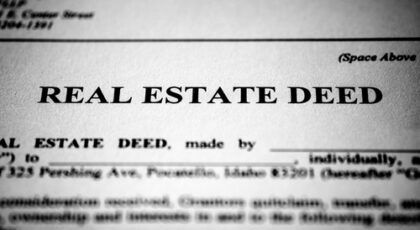Introduction
Purchasing a home is an exciting milestone in anyone’s life. However, the financial aspects of homeownership can often seem overwhelming. That’s where the Federal Housing Administration (FHA) steps in with their home loan program tailored specifically for Florida residents. If you’re considering buying a home in Florida, it’s crucial to understand the Florida FHA home loan requirements. This comprehensive guide will walk you through the process, from eligibility criteria to application steps, ensuring you’re well-prepared to embark on your homeownership journey.
Florida FHA Home Loan Requirements
Owning a home in Florida becomes an attainable dream through the FHA home loan program. The following are the key requirements you need to meet to qualify for an FHA home loan in Florida:
- Credit Score: The FHA has a more lenient approach to credit scores compared to conventional loans. While most lenders require a minimum credit score of 620, FHA loans often accept scores as low as 500. However, to benefit from a lower down payment, a credit score of at least 580 is advisable.
- Debt-to-Income Ratio (DTI): The FHA also considers your DTI ratio, which compares your monthly debt obligations to your gross monthly income. Typically, a DTI ratio of 43% or lower is required, although exceptions may be made for borrowers with compensating factors.
- Employment Stability: Lenders want assurance that you have a stable employment history. Generally, they look for at least two years of consistent employment, preferably with the same employer.
- Down Payment: FHA loans offer the advantage of a lower down payment requirement. In Florida, the minimum down payment is 3.5% of the purchase price. This means that for a $200,000 home, your down payment would be $7,000.
- Mortgage Insurance Premium (MIP): FHA loans require borrowers to pay an upfront MIP at closing and an annual MIP throughout the life of the loan. The upfront MIP is typically 1.75% of the loan amount, while the annual MIP ranges from 0.45% to 1.05%, depending on the loan term and down payment amount.
- Property Requirements: The property you intend to purchase must meet certain criteria, including being your primary residence, passing an FHA appraisal for its value and safety, and meeting specific minimum property standards.
By satisfying these requirements, you can take advantage of the FHA home loan program and pave the way to homeownership in Florida.
Frequently Asked Questions
Q: Can I qualify for an FHA loan if I have a bankruptcy or foreclosure in my credit history?
A: Yes, it is possible to qualify for an FHA loan even if you have a bankruptcy or foreclosure in your credit history. However, certain waiting periods apply. For bankruptcies, you typically need to wait at least two years after the discharge date, while foreclosures require a waiting period of three years. Additionally, you’ll need to demonstrate responsible financial behavior since the bankruptcy or foreclosure.
Q: Are there income limits for FHA loans in Florida?
A: No, FHA loans do not have specific income limits. However, your income will be evaluated in relation to your debt obligations to determine your DTI ratio, which affects your loan eligibility.
Q: Can I use an FHA loan to purchase a fixer-upper property?
A: Yes, you can use an FHA loan to purchase a fixer-upper property through the FHA 203(k) program. This program allows you to include the costs of repairs and renovations in your loan amount, making it a convenient option for those looking to invest in a property that needs some TLC.
Q: Are there any homeownership education requirements for FHA loans?
A: While not mandatory, it is highly encouraged to complete a homeownership education course approved by the FHA. These courses provide valuable insights and knowledge about the home buying process, financial management, and maintaining your home.
Q: Can I use gift funds for my FHA down payment?
A: Yes, FHA loans allow the use of gift funds for your down payment. The gift must be from a relative, employer, or charitable organization and must be properly documented to meet FHA requirements.
Q: Can I refinance my existing FHA loan in Florida?
A: Absolutely! FHA loans offer various refinancing options, including the FHA Streamline Refinance and the FHA Cash-Out Refinance. These programs allow you to reduce your interest rate, change your loan term, or access the equity in your home.
Conclusion
Securing a home loan in Florida doesn’t have to be an overwhelming process. By understanding and fulfilling the Florida FHA home loan requirements, you can make your dream of homeownership a reality. Remember, the FHA home loan program offers flexible guidelines and favorable terms that can benefit first-time homebuyers and those with less-than-perfect credit. Consult with a knowledgeable lender to explore your options and take the first step towards owning your own piece of Florida paradise.

















